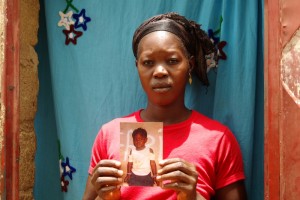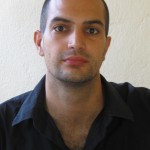Interviews – a spoiled investigation
As we continue in our series about difficult and challenging interviews, Martin Vogl reflects on conducting an interview that was crucial to his investigation into illegal adoptions in Mali.
I think the hardest interview I have ever done was with the head of an orphanage in Mali I suspected of being involved in illegal adoptions. The interview was tough because there was so much at stake; this interview had the potential to lift the lid on an investigation I had been working on for many months.
I had been looking into some suspicious adoptions in Mali and had collected a lot of information about a number of different cases, but I didn’t have the knock-out interview or document that showed exactly what had been going on. I suspected something terribly wrong was happening but I didn’t know exactly how it was happening or who was responsible for what. My hope for my interview that day was that the head of the orphanage would crack and reveal all or at least some of the secrets about what had been going on.

During my investigations, I met Hawa among others. Her child had gone missing and she was worried it might have ended up being adopted.
The key to the interview, I thought, was going to be the order of the questions. I had to decide when to ask what and when to reveal what I already knew about the irregularities in the adoption procedure there. I painstakingly prepared the questions and then mentally rehearsed my plan of attack so that I wouldn’t have to look at my notes too much when the time came.
When I arrived at the orphanage Mrs Pona, the head, received me in a very friendly way. I was surprised. She knew I had some questions to ask about her adoption procedures and so I expected her to be more hostile. I imagined that either she thought I was going to be a pushover or she had prepared her own strategy and her big smile was designed to put me off guard.
In any case, I tried to take advantage of the situation and asked to have a look around the orphanage. This let me gather some good background material for the report.
When Mrs Pona finally received me in her office, I accepted the soft drink she offered me and sat smiling pleasantly. “How bizarre is this,” I thought to myself, “A woman I’m about to accuse of selling babies to foreigners is giving me a Coke.”
I started with the most basic questions about her and the orphanage and then slowly moved on to the more difficult points. She denied it all. I tried lots of different approaches and rephrased my questions a number of times, but nothing worked. I can remember the disappointment starting to set in even during the interview as I realised I was not going to get the better of her. Either she had nothing to hide or she was able to hide it very, very well.
One very important lesson I learnt from this interview is that WHEN you schedule this type of interview during an investigation can be very important. A couple of weeks after I did the interview with Mrs Pona, I got given a document relating to the orphanage that significantly bolstered my evidence of wrongdoing there. Perhaps if had had that when I had spoken to Mrs Pona, I might have got her to talk. Of course after my first interview, she never agreed to meet me again.
Martin Vogl regularly trains journalists in North and West Africa for DW Akademie. Until recently he was based in Bamako, Mali, where he worked as a correspondent for various international media.





Feedback